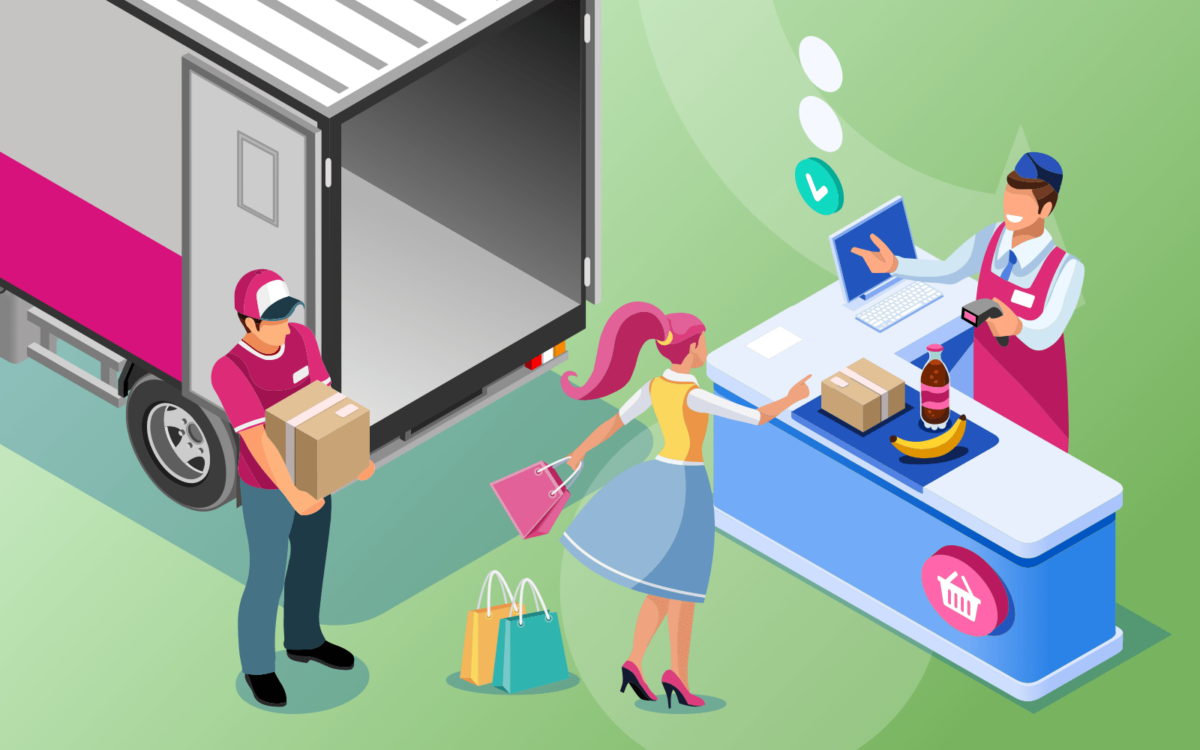
I think that we sometimes forget just how familiar a part of our everyday lives that online shopping has become.
Yet the statistics bear truth to how reliant upon e-commerce we now are.
In Europe, some 19 billion parcels were shipped by retail brands large and small to their consumers last year alone – a rise of just under five per cent on the year before.
That tally is expected to reach 20 billion within the next year or so, part of a global online ordering blitz which is set to top 225 billion by 2028, according to one study.
Unsurprisingly, that volume generates no little consequence.
Only last December, the European Union, concerned about the environmental impact of having more delivery vehicles on the continent’s roads, introduced new rules which aim to provide consumers with greater clarity about the carbon emissions involved, enabling them to make a more “informed choices” about how they collect or return goods.
It is just one reason why e-tailers find themselves grappling with the conundrum of how to ensure that deliveries and returns – a key part of the overall customer experience – are managed in such a way as to keep shoppers happy, remain efficient and protect the planet.
As drop2shop knows very well, Europe is doing its bit to help.
A new report by Last Mile Experts – one of very few consultancies specialising, as its name would suggest, in the important final phase of shipment for retailers, their customers and the logistics industry across Europe – details just how.
Its research has shown that consumers across the continent are now more willing to use Out of Home (OOH) delivery methods than their counterparts elsewhere around the world.
Last Mile Experts has concluded, in fact, that there were 349,230 Pick-up or Drop-Off (PUDO) points across Europe last year – up six per cent on the previous 12 months.
The report also spells out just why PUDO and parcel lockers are proving so popular.
As well as being “operationally efficient” and enabling multiple shipments to a single spot in one go rather than a variety of journeys to consumers’ homes, they create a greater likelihood of shoppers taking delivery of their purchases at the first time of asking.
The Last Mile Experts’ report identifies how drop2shop is one of Ireland’s most important PUDO networks
drop2shop was established to allow consumers to receive or return goods bought from major online brands via some of Ireland’s best known convenience stores – the sort of places at which one million of the country’s population shop on a daily basis.
To improve choice for shoppers and the hundreds of retailers whom we work with, the number of participating stores in the drop2shop network has increased by 50 per cent in the space of just 12 months.
They now include many of the in-store services offered by the pharmacy giant Boots, thereby maximising the ease with which consumers can collect or return goods bought online.
Furthermore, their purchases are brought to or from drop2shop partner premises on the same vehicles which deliver store stock, making the need for extra vehicles and a much greater carbon footprint completely unnecessary.
Given that drop2shop takes advantage of existing stores, it already overcomes one of the Last Mile Expert concerns; namely, that without significant investment, the OOH delivery infrastructure will become choked and more expensive for brands due to less last-mile capacity.
After all, further official data underlines that the online shopping boom is far from over.
The latest figures from Ireland’s Central Statistical Office (CSO) reveal that e-commerce orders placed with domestic retailers fell in May.
However, equivalent numbers from the UK’s Office for National Statistics (ONS) demonstrate that the value of online orders placed with UK businesses have rebounded after the cost of living crisis.
Many of those orders were placed by Irish customers with our many retailer clients who appreciate the ease with which drop2shop gives them access to a thriving market which generated €7.4 billion (£6.5 billion) worth of online orders in 2022.
They know that with a hungry consumer audience, more intense scrutiny from regulators and the need to keep consignments economically and environmentally viable, being able to rely on a proven last mile service like drop2shop can help overcome the barriers to success.